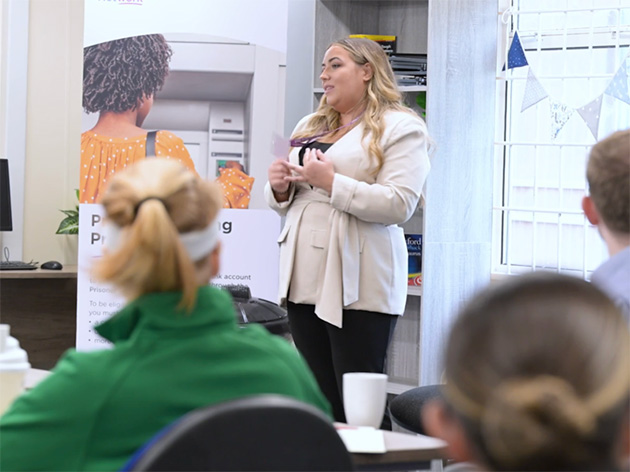Every role filled by a prison leaver transforms a life. That was the powerful takeaway from a session I recently chaired at the Modernising Criminal Justice conference. Joined by our client Transport for Wales, the New Futures Network, and a colleague who previously served time and has since joined Amey, we explored how infrastructure providers can play a pivotal role in reshaping the justice system through employment.
Setting the scene: Aligning to Government mission
Earlier that day, Minister Timpson spoke about the Independent Sentencing Review and its potential to reduce short-term sentencing, create a safer society, and lower reoffending rates. Alongside Labour’s five bold missions, which aim to provide a framework for national stability, investment, and public service reform – the review has the potential to deliver a step change in second chances. Businesses like Amey, which delivers critical infrastructure services, are increasingly looking at how they can support this agenda - not just through economic growth, but by breaking down barriers to opportunity.
Our panel discussion focused on how Government infrastructure providers can connect operational teams, third-sector organisations, and the wider supply chain to help prisoners rebuild their lives. It’s the same conversation that sets the agenda for our Rehabilitation Alliance Board, and one that will also see us ringfence 53 roles across our Transport Infrastructure business over the next two years.
At Amey, we are already on the journey of embedding social hiring into our business. Alongside clients like Transport for Wales, we’re unlocking opportunities across our operations and within our supply chain for talented individuals, who are currently in, or leaving the prison system. Through our Journey to Work programme, we have committed to ensuring that 13% of our new hires in 2025 come from disadvantaged backgrounds - including prison leavers.

But this isn’t just a means to achieve a target, it’s about doing the right thing as a company and enacting real change. Through our contract to deliver asset management across 64 prisons for the Ministry of Justice, we can work directly with individuals in the final three months of their sentence, preparing them to apply for live roles. We understand that many of these individuals face complex challenges, and through our third-sector partners we provide tailored support, ensuring that candidates are not only job-ready, but set up for long-term success.
Misconception: The challenge in change
Panellist Karl Gilmore launched the Pathways Programme during his time as Infrastructure Director at Transport for Wales. Driven by the Well-being of Future Generations (Wales) Act, Karl worked with contractors - including Amey - to create meaningful employment opportunities for prison leavers on the Core Valley Lines project. Though he has since moved on to a new role at DEEP – an international research and development organisation - Karl remains deeply passionate about the programme and its impact and still Chairs the Employment Advisory Board at HMP Prescoed and Usk.
He spoke candidly about the challenges of launching such an initiative, but also about the unexpected benefits. The programme didn’t just change the lives of those who were hired - it changed the perceptions of the teams who worked alongside them. It sparked conversations, challenged assumptions, and ultimately created a more inclusive and resilient workforce.
That sentiment was echoed by our panellist Gareth, who joined Amey from prison: “This isn’t just about giving someone a second chance. It’s about giving society a better chance.” Gareth has worked tirelessly since joining our team five years ago to support those with lived experience thrive on Amey’s Transport Infrastructure contracts in Wales. He regularly visits prisons across the UK to speak to people nearing the end of their sentences about his experience and the opportunities available across our business and the supply chain.
Creating connections: Working collaboratively towards a shared vision
New Futures Network (NFN) plays a crucial role in connecting prisons with employers, supporting the integration of prison leavers into the workforce. Prison Employment Leads, Employment Hubs, and Employment Advisory Boards, all form part of the organisation’s approach to ensure that individuals are matched with the right opportunities and supported throughout their transition. Their work is helping to normalise social hiring and make it a core part of how businesses approach recruitment. Lance Harris, National Sector Lead at NFN, added:
“There are superstars in prisons, and they’re coming out all the time - why wouldn’t you employ them?”
These individuals are not liabilities - they are assets. With the right support, they can become some of the most committed, capable, and loyal members of any workforce. At Amey, we’ve seen this first hand. Our programmes have led to higher retention rates, opened up new talent pools, and strengthened our ESG credentials. Social hiring makes business sense too.
This work is especially timely. Despite a recent dip in overall vacancies, the UK still faces persistent recruitment challenges in key sectors, with construction and infrastructure among the hardest-hit sectors. And data on reoffending reinforces the urgency. Estimated to cost the UK £18 billion a year, 80% of offences are committed by repeat offenders. Yet the proven reoffending rate for those employed at six weeks post-release is drastically lower than those who are unemployed. Employment, alongside housing and family support, is one of the seven pillars of rehabilitation - and often seen as the most transformative.
The new normal: Changing tracks to change lives
Looking ahead, we believe that social hiring will become the norm. Our hope is that in five years’ time, hiring someone with a criminal record will be as unremarkable as hiring a graduate. That social hiring will be embedded in every contract, every supply chain, and every boardroom conversation.
Because when we change tracks, when we shift our mindset from risk to opportunity, we don’t just transform lives. We transform business and society. And that is a journey worth taking.
